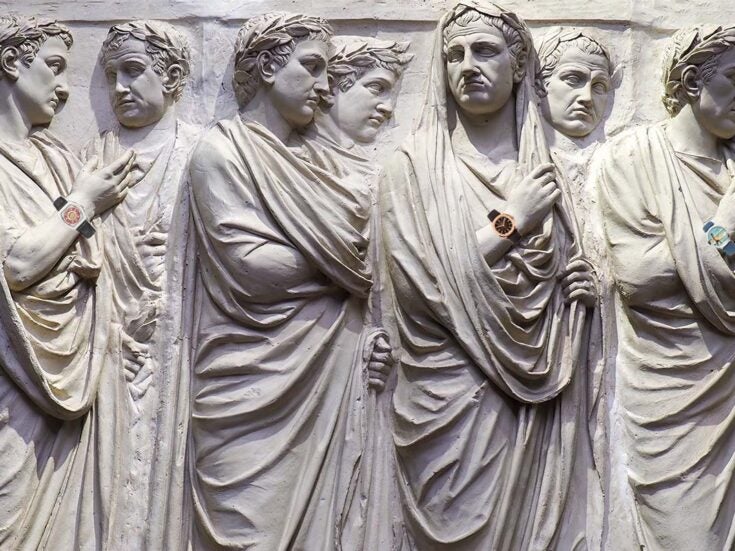

Down in the Dolomites
Italy and Greece are all doom and gloom if you believe the ‘awfulising’ mass media — but the reports of the emergence of Turkey as a force in the Med are more accurate, says Clive Aslet
SEISMIC SHIFTS CAN be felt in parts of the eurozone. In Corfu, I heard Greek friends complaining about the authorities’ unfeeling attitude towards back taxes that may or may not need upward adjustment. One was expecting a visit from the inspector, uncertain whether the complexity of the ownership structure of his property would be enough to bamboozle him. ‘Take €2,000 out of the bank in cash,’ advised the other. The first replied with sadness: ‘That doesn’t work any more.’ Taxes are collected via the householder’s electricity bill: you don’t pay, you’re cut off.

In the Dolomites, I found that Italians have become chary of displaying their wealth. This land of cowbells and almost perpendicular white crags has become impossibly expensive for ordinary mountain folk: the demand for holiday homes has pushed real estate to the level of Costa Smeralda in Sardinia. But for how much longer will they stay at that peak? Will the top be blown off the upper part of the market, in the manner of the First World War, when Alpine troops would sometimes quarry for several kilometres through the guts of a mountain to explode a colossal mine beneath the Austrians holding it? Anyone making a show of conspicuous consumption is expected to explain where he got the wonga, properly taxed, to pay for it. Ouch.
These are the things you hear about. As for what a visitor sees, I’m baffled by the disparity between television reports and the evidence of my eyes. I admit that I’m a sceptic when it comes what the psychologists call ‘awfulising’ stories in the media. But they can generate fear. A banker friend tells me that Germans in his firm won’t go to Greece. I suppose if you were an aristocrat, you might have thought twice about parading beside the guillotines of the French Revolution. But Thessaloniki, Greece’s second city, seemed very much its usual self when I went through it recently. There was a demonstration, by a couple of dozen construction workers who’d been laid off a civic project. But they appeared to be despondent rather than angry. As we watched from our cafe, I tried to picture ourselves as diners at the restaurant in Dr Zhivago which falls awkwardly silent as the sound of a Bolshevik protest is heard outside. But I couldn’t.
It’s the same old Greece. I met a woman who explained the charm of living in Thessaloniki; the centre being small, you never had to make an appointment to see anyone, you were sure to bump into them later that day or the day after. Then you would have a coffee, and ‘with us a coffee lasts the whole morning’. Still, the hotel I stayed in was full, the shops open, the taxi that took me to Lake Doiran (scene of a fearful battle in 1918) sleek, the countryside irrigated with an opulence that make it seem like a Shangri-La.
TURKEY IS DIFFERENT. James Bond has been there; Istanbul is the setting for Skyfall, to be released in October. My friends there are furious. Not only did filming make it practically impossible to get to the Spice Market, but the extras were shown wearing fezzes and robes, with the facial colouring of Arabs. ‘We’re not Arabs,’ they protest. I thought I recalled men in fezzes from the time I visited Istanbul as a schoolchild — but this assertion was met with scepticism. They’re terribly European now.
And yet, Europe could do with some old-style Turkish hustle. They are very eager to sell you stuff. I don’t just mean carpets, although it would be easier for a fly to escape from a spider’s web than a tourist to leave an emporium without buying one. Waiters accost you in every street, anxious that you should bestow your patronage on their establishment. Everyone is solicitous of your good opinion. I stayed at Erten Konak, one of the merchants’ houses behind the Blue Mosque which have been turned into boutique hotels. The owner was solicitous of a mention and I’m happy to give him one.
My guide, Hakan, found through the hotel, introduced me to his friends, and if every encounter seemed to end with a flow of money from my wallet into their pockets, I couldn’t object. It was done with a smile. I was pleased to buy Turkish delight made with honey, pomegranate tea and some marbled paper.
Of course, you could say it’s part of the game; the Turks have become showmen because they know that’s what we visitors like. But that doesn’t quite explain the energy of the place. Istanbul is a famously dazzling city, but it’s also alive. Competition gives it energy, like New York. Out of it have come the ultra-rich, with multimillion-pound holiday homes on the shore. But a farmer on the Gallipoli peninsula will set a feast of his own olives, chillies, cheese, special bread and other delicacies in front of you, simply because you happened to stop to taste his tomatoes and it’s lunchtime. He wouldn’t take any payment (although we did succeed in giving some pocket money to his children).
Not a recipe for worldly success, you might think. But contrast breeds excitement, and the excitement shows this country is on the move.
Read more by Clive Aslet
Don’t miss out on the best of Spear’s articles – sign up to the Spear’s weekly newsletter
[related_companies]







